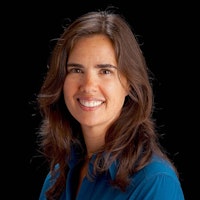Self-compassion enables women to balance kindness towards others with essential self-care.
Kristin Neff, PhD

Essential Self-Care
Topic: Self-Cultivation & Health
Gender roles often compel women to be caretakers for others, sometimes at the expense of caring for themselves. Self-compassion enables women to balance kindness towards others with essential self-care.
Kristin Neff was born on March 26, 1966, in Germany, where she spent the first several years of her life before moving to the United States. Her academic journey began at UCLA, where she studied cultural moral development, eventually earning her doctorate. Notably, she worked with Elliot Turiel, a pioneer in the psychology of moral development, laying a robust foundation for her later work on self-compassion. She now serves as an Associate Professor of Educational Psychology at the University of Texas at Austin, bringing deep expertise to the human development and culture research areas.
Neff's personal life and academic pursuits intersect in her engagement with Zen Buddhism and the practice of mindfulness. Influenced by Zen Master Thich Nhat Hanh, she has integrated meditative practices into her research methodology and personal life. This convergence of Eastern philosophy and academic rigor led her to co-found the Center for Mindful Self-Compassion with research psychologist Dr. Chris Germer. Together, they've worked to advance scientific understanding of self-compassion through evidence-based techniques. Her most influential books, "Self-Compassion: The Proven Power of Being Kind to Yourself" and "Fierce Self-Compassion: How Women Can Harness Kindness to Speak Up, Claim Their Power, and Thrive," have expanded this knowledge beyond academia, providing accessible insights for the general public.
In another blend of personal and professional endeavors, Neff and her family traveled to Mongolia to film "The Horse Boy," a documentary exploring equine therapy for autism, which features her autistic son. This journey was not merely an external adventure but an inner one, reaffirming her belief in the interconnectedness of well-being, love, and acceptance. Through academic study, personal practice, and experiential learning, Kristin Neff has constructed a life that serves as a testament to the transformative power of self-compassion and its essential role in mental well-being.
Kristin Neff, "Fierce Self-Compassion: How Women Can Harness Kindness to Speak Up, Claim Their Power, and Thrive," (2021, p. 67).

Kristin Neff, PhD
Theme: Healing

About Kristin Neff’s Quote [Commentary]
Kristin Neff names the pressure plainly: “Gender roles often compel women to be caretakers for others, sometimes at the expense of caring for themselves.” She immediately offers a response in the same sequence: “Self-compassion enables women to balance kindness towards others with essential self-care.” First, tell the truth about the expectation to overgive; then, practice what restores balance.
This naming corrects a common mistake. Turning care inward is not selfish. When giving happens “at the expense of caring for themselves,” the well runs low. By calling self-care “essential,” Kristin Neff places it inside mature kindness. The aim is not withdrawal from others but a sustained capacity to “balance kindness towards others with essential self-care.” Caregivers of every gender can recognize the same pattern and need.
For healing, her order matters. Acknowledge roles that “compel” constant giving; then let self-compassion “enable” a healthier rhythm. “Self-compassion enables women to balance kindness towards others with essential self-care” is not abstract; it is a daily practice that keeps love steady for self and neighbor. This is how real healing begins and continues.
Additional Kristin Neff Quotes
Resources
Related Quotes
Copyright © 2017 – 2025 LuminaryQuotes.com About Us